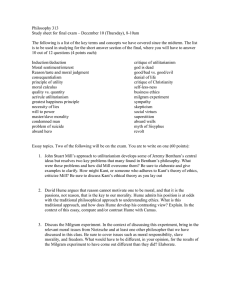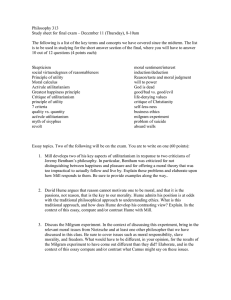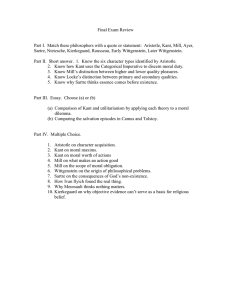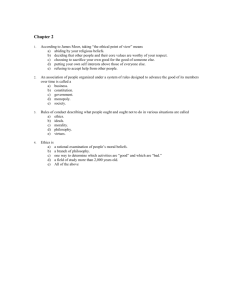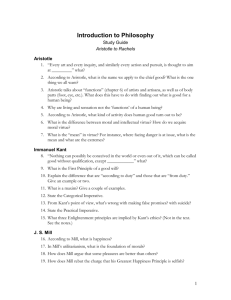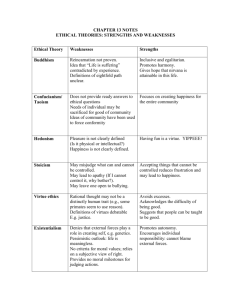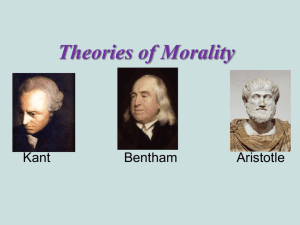Kant & Utility
advertisement
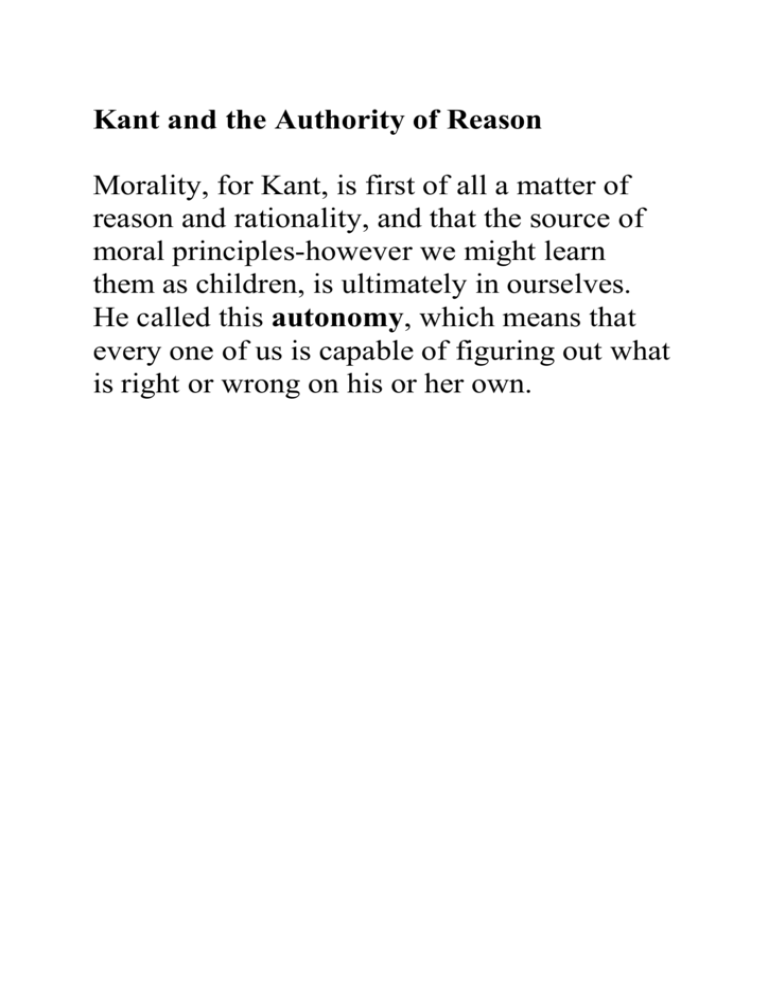
Kant and the Authority of Reason Morality, for Kant, is first of all a matter of reason and rationality, and that the source of moral principles-however we might learn them as children, is ultimately in ourselves. He called this autonomy, which means that every one of us is capable of figuring out what is right or wrong on his or her own. 2 Kant's formulations of the categorical imperative: 1. Act only on that maxim [intention] whereby you can at the same time will that it should become a universal law. 2. Act as if the maxim of your action were to become by your will a universal law of nature. 3. Always act so as to treat humanity whether in yourself or in others, as an end in itself never merely as a means. 4. Always act as if to bring about and as a member of a Kingdom of Ends [that is, an ideal community in which everyone is always moral]. 3 Kant's morality of principles theory begins with the insistence that it is always the rationality of the principles, not the consequences of our actions, that is morally relevant. A person is moral insofar as he or she tries to be moral, tries to obey moral principles, tries to do his or her duty. And though obeying these moral principles and trying to do our duty will, in most cases, benefit both other people, and us this is in no way relevant to their justification. The justification for being moral is simply that it is the rational thing to do nothing else. The test of a moral principle's rationality is its universalizability that is, its capacity to be generalized for everyone, everywhere. What this also means is that one and the same set of moral principles will apply to every person, in every society, at every time in history, regardless of the particular circumstances and interests of individuals or different societies. 4 Utilitarianism: Bentham and Mill The utility principle: Always act for the greatest good for the greatest number of people. The goal of morality, according to Mill, Bentham, and almost all other utilitarians, is to make people happy, to give them pleasure and spare them pain. Indeed Bentham developed a "happiness calculus" precisely in order to calculate, for any action or law, what the consequences in terms of pleasure and pain would be. John Stuart Mill qualified Bentham's calculus considerably. Mill insisted, for example, that there were different qualities of pleasure and pain as well as differences in quantity. It is better to be only slightly satisfied with a "higher" pleasure than to be very satisfied with a lower pleasure. 5 As Mill phrased it metaphorically in his work “Utilitarianism”: It is better to be a human being dissatisfied than a pig satisfied; better to be Socrates dissatisfied than a fool satisfied. Mill's qualification makes the calculations virtually impossible, but the basic principle is still the same: the greatest good for the greatest number of people, the most happiness and the least pain for as many people as possible, for every act and every law or principle.
